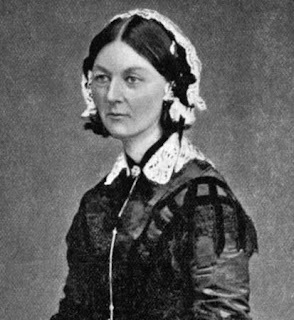
Why was Florence Nightingale called 'The lady of the lamp' ?
Florence was very dedicated to her job. She would often visit the soldiers at night when every one was asleep just to make sure they were ok. She was then referred to as “The Lady of the Lamp” because she hardly took time off to sleep. Florence became a true hero to the soldiers and everyone back home in England.
Florence Nightingale became a living legend as the 'Lady with the Lamp'. She led the nurses caring for thousands of soldiers during the Crimean War and helped save the British army from medical disaster.
This was just one of Florence's many achievements. She was also a visionary health reformer, a brilliant campaigner, the most influential woman in Victorian Britain and its Empire, second only to Queen Victoria herself.
At the start of Pope Benedict XVI visit to Britain in September 2010, he praised Florence's achievements in his Holyroodhouse speech. "We find many examples of this force for good throughout Britain’s long history." "Inspired by faith, women like Florence Nightingale served the poor and the sick and set new standards in healthcare that were subsequently copied everywhere."
When she died in 1910, aged 90, she was famous around the world. But who was the real Florence Nightingale?
Florence Nightingale was born in Italy on 12th May 1820. Despite opposition from her family she decided to devote her life to nursing and campaigning for better health care and sanitation for all. It was her work during the Crimean War that created the legend of the Lady with the Lamp and it was her experience here that drove her to continue, researching, writing and tirelessly campaigning.
After the Crimean War she demanded a Royal Commission into the Military Hospitals and the health of the Army, she began investigating the health and sanitation in the British Army in India, and the local population. Money which had been sent by the general public to thank her for her work in the Crimea was used to establish the first organised, training school for nurses, the Nightingale Training School at St Thomas’ Hospital.
Her greatest achievement was to make nursing a respectable profession for women. Florence's writings on hospital planning and organization had a profound effect in England and across the world, publishing over 200 books, reports and pamphlets.
Florence died at the age of 90, on 13th August 1910, she had become one of the most famous and influential women of the 19th century. Her writings continue to be a resource for nurses, health managers and planners to this day.
Source : http://www.florence-nightingale.co.uk
http://nurse-florencenightingale.blogspot.com/2011/05/florence-nightingale-for-kids.html
